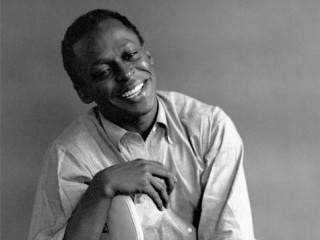
Miles Davis biography
Date of birth : 1926-05-26
Date of death : 1991-09-28
Birthplace : Alton, Illinois, U.S.
Nationality : American
Category : Arts and Entertainment
Last modified : 2010-05-25
Credited as : Musician jazz trumpeter, ,
As one of the world’s most amazing jazz composers and trumpet players in world history, Miles Davis became a legend in his own time. His more than twenty years dedicated to his music would ensure his fame, even after his legendary concerts and creations subsided. He, more than anyone else, would change the path of trumpet players and Jazz aficionados forever.
Young Miles wasn’t born into poverty or hard times. He was, in fact, born to a dentist in Illinois who held many prominent positions in the field. During Miles’ earlier years, he was encouraged to pursue his musical inclinations, and by the age of 10 began working with Clark Terry after the family moved to St. Louis. At the age of 18, Davis moved to New York City where he worked for various bands and enrolled in the Julliard School, which was known as the Institute of Musical Art at that time. By 1949, his first recording was released, aptly entitled, Birth of the Cool.
Within six years, he released Walkin’ and Bags Groove, which won him much prestige in jazz circles of the day. In his albums, Davis didn’t try to do anything innovative or daring; he just showed his pure skill and ability to control the music that flowed naturally. With bebop and the rise in jazz improvisation, Miles Davis solidified his own style and gave rise to the West Coast jazz school.
In the 1950s, the fame, fortune, and stress of his musical career led him to experiment with drugs – something he would regret for the rest of his days. He became addicted to heroin and fell out of the public limelight for nearly four years. He was able to overcome his addiction and began playing even more. He became the most famous jazz composer of the day and was the main act at several notable concerts.
As his career and fame progressed, he began experimenting more with different mixes of rock and jazz, which led to a drop in his fame. Even though his music changed, the media kept a close eye on Davis who had a strange of treating others, sometimes close and sometimes distant. He was known to turn his back on audiences and yell racial slurs, due to his experiences with white police. He did, however, donate large amounts of money to artists and foundations, all of which supported both white and black musicians.
















